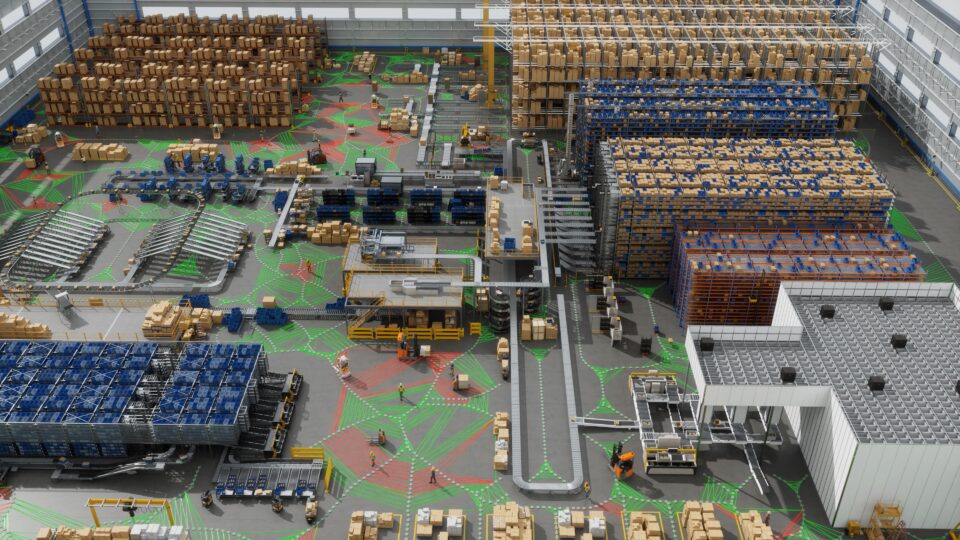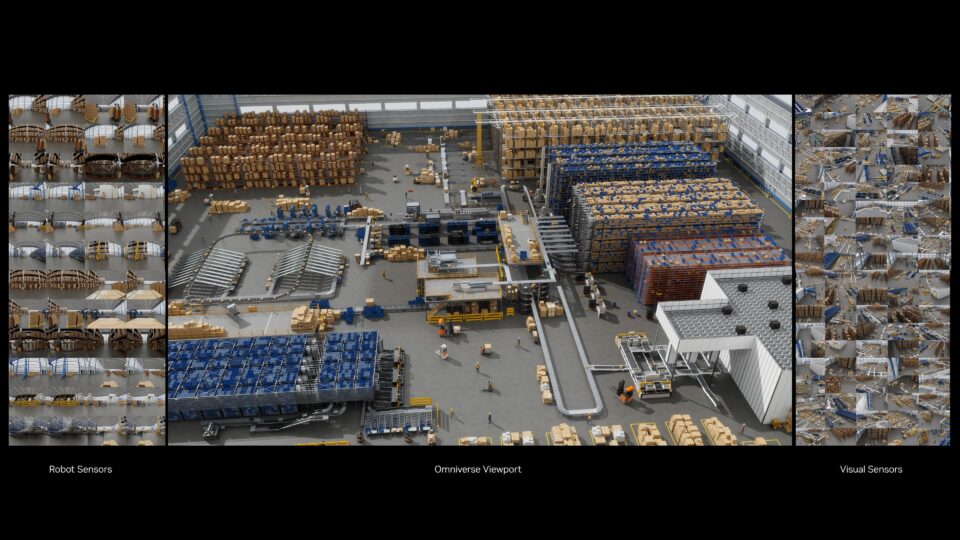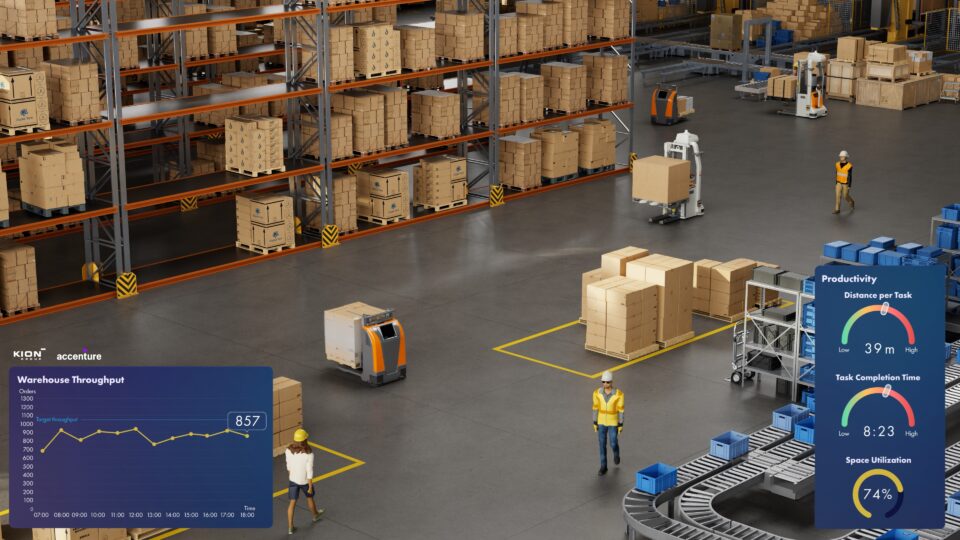According to Gartner, the worldwide end-user spending on all IT products for 2024 was $5 trillion. This industry is built on a computing fabric of electrons, is fully software-defined, accelerated — and now generative AI-enabled. While huge, it’s a fraction of the larger physical industrial market that relies on the movement of atoms.
Today’s 10 million factories, nearly 200,000 warehouses and 40 million miles of highways form the “computing” fabric of our physical world. But that vast network of production facilities and distribution centers is still laboriously and manually designed, operated and optimized.
In warehousing and distribution, operators face highly complex decision optimization problems — matrices of variables and interdependencies across human workers, robotic and agentic systems and equipment. Unlike the IT industry, the physical industrial market is still waiting for its own software-defined moment.
That moment is coming.

NVIDIA today at CES announced “Mega,” an Omniverse Blueprint for developing, testing and optimizing physical AI and robot fleets at scale in a digital twin before deployment into real-world facilities.
Advanced warehouses and factories use fleets of hundreds of autonomous mobile robots, robotic arm manipulators and humanoids working alongside people. With implementations of increasingly complex systems of sensor and robot autonomy, it requires coordinated training in simulation to optimize operations, help ensure safety and avoid disruptions.
Mega offers enterprises a reference architecture of NVIDIA accelerated computing, AI, NVIDIA Isaac and NVIDIA Omniverse technologies to develop and test digital twins for testing AI-powered robot brains that drive robots, video analytics AI agents, equipment and more for handling enormous complexity and scale. The new framework brings software-defined capabilities to physical facilities, enabling continuous development, testing, optimization and deployment.
With Mega-driven digital twins, including a world simulator that coordinates all robot activities and sensor data, enterprises can continuously update facility robot brains for intelligent routes and tasks for operational efficiencies.
The blueprint uses Omniverse Cloud Sensor RTX APIs that enable robotics developers to render sensor data from any type of intelligent machine in the factory, simultaneously, for high-fidelity large-scale sensor simulation. This allows robots to be tested in an infinite number of scenarios within the digital twin, using synthetic data in a software-in–the-loop pipeline with NVIDIA Isaac ROS.

Supply chain solutions company KION Group is collaborating with Accenture and NVIDIA as the first to adopt Mega for optimizing operations in retail, consumer packaged goods, parcel services and more.
Jensen Huang, founder and CEO of NVIDIA, offered a glimpse into the future of this collaboration on stage at CES, demonstrating how enterprises can navigate a complex web of decisions using the Mega Omniverse Blueprint.
“At KION, we leverage AI-driven solutions as an integral part of our strategy to optimize our customers’ supply chains and increase their productivity,” said Rob Smith, CEO of KION GROUP AG. “With NVIDIA’s AI leadership and Accenture’s expertise in digital technologies, we are reinventing warehouse automation. Bringing these strong partners together, we are creating a vision for future warehouses that are part of a smart agile system, evolve with the world around them and can handle nearly any supply chain challenge.”
Creating operational efficiencies, KION and Accenture are embracing the Mega Omniverse Blueprint to build next-generation supply chains for KION and its customers. KION can capture and digitalize a warehouse digital twin in Omniverse by using computer-aided design files, video, lidar, image and AI-generated data.
KION uses the Omniverse digital twin as a virtual training and testing environment for its industrial AI’s robot brains, powered by NVIDIA Isaac, tapping into smart cameras, forklifts, robotic equipment and digital humans. Integrating the Omniverse digital twin, KION’s warehouse management software can create and assign missions for robot brains, like moving a load from one place to another.

These simulated robots can carry out tasks by perceiving and reasoning in environments, and they’re capable of planning next motions and then taking actions that are simulated in the digital twin. The robot brains perceive the results deciding the next action, and this cycle continues with Mega precisely tracking the state and position of all the assets in the digital twin.
Accenture, global leader in professional services, is adopting Mega as part of its AI Refinery for Simulation and Robotics, built on NVIDIA AI and Omniverse, to help organizations use AI simulation to reinvent factory and warehouse design and ongoing operations.
With the blueprint, Accenture is delivering new services — including Custom Robotics and Manufacturing Foundation Model Training and Finetuning; Intelligent Humanoid Robotics; and AI-Powered Industrial Manufacturing and Logistics Simulation and Optimization — to expand the power of physical AI and simulation to the world’s factories and warehouse operators. Now, for example, an organization can explore numerous options for their warehouse before choosing and implementing the best one.
“As organizations enter the age of industrial AI, we are helping them use AI-powered simulation and autonomous robots to reinvent the process of designing new facilities and optimizing existing operations,” said Julie Sweet, chair and CEO of Accenture. “Our collaboration with NVIDIA and KION will help our clients plan their operations in digital twins, where they can run hundreds of options and quickly select the best for current or changing market conditions, such as seasonal market demand or workforce availability. This represents a new frontier of value for our clients to achieve using technology, data and AI.”
Join NVIDIA at CES.
See notice regarding software product information.